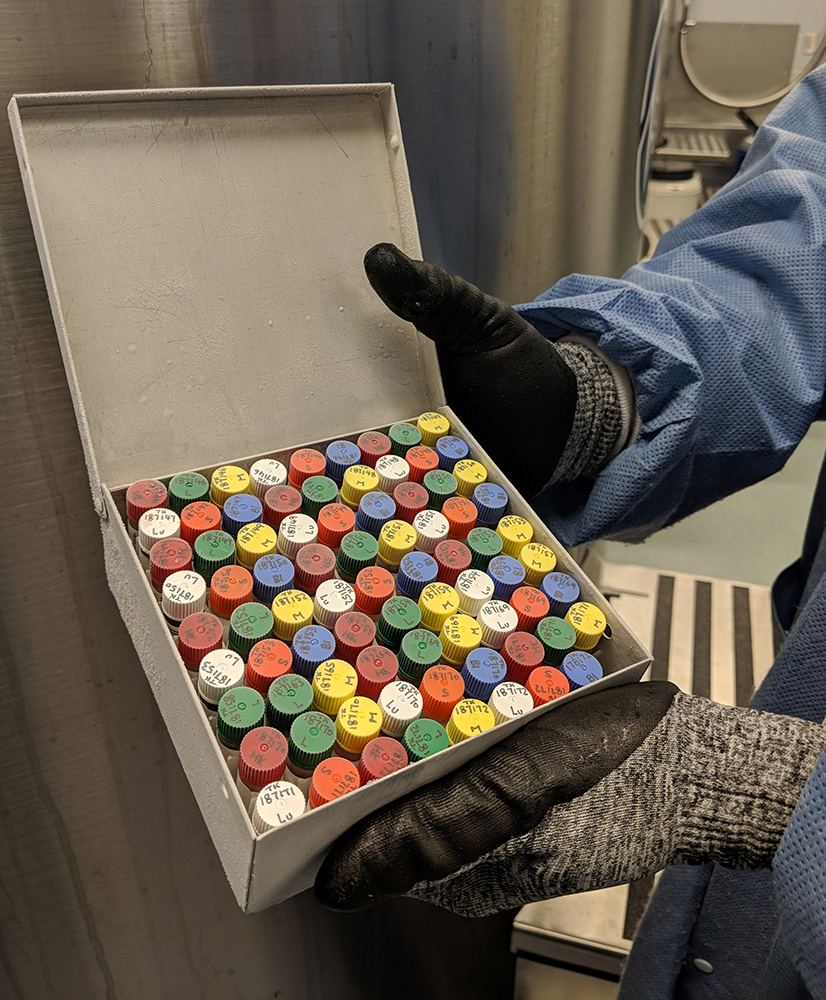Frozen in Time
Genetic Resources Collections...Preserving the Past and Making Future Discoveries Possible
October 6, 2019 – Fall 2020

This exhibit highlights the value of genetic resource collections—samples of biological materials preserved for genetic research—to scientific discovery, education, and society. The Genetic Resources Collection of the Natural Science Research Laboratory (NSRL), a division of the Museum of Texas Tech University, currently houses more than 411,000 samples of preserved animal tissues from more than 1,400 species and more than 100,000 individuals of mammals, birds, and invertebrates. Most of the samples are stored at -190C in liquid nitrogen freezers; this is considered the 'gold standard' for preserving the DNA and other genetic information that these samples contain. Each tissue sample in a genetic resources collection is unique and irreplaceable, as it represents an individual at a specific point in time and space. By being "frozen in time", these samples can reveal clues to that animal's environment (such as contaminant exposure), health (diseases and parasites), and many other pieces of information that can be critical to understanding the natural world of the past and the present, and to providing answers and solutions for the future. Samples in genetic resource collections are used by scientists from around the world to conduct research and address issues concerning the diversity of life on earth, environmental changes such as habitat loss and climate change, wildlife diseases (including those that can be transmitted to humans or livestock), and much more.
On October 22, 2019, Dr. Robert Bradley and the staff of the Natural Science Research Laboratory gathered with friends, colleagues, and distinguished guests to celebrate a number of important milestones, including:
- Baker Memorial Volume Release and Signing
- Renaming of the Genetic Resources Collection in honor of Robert J. Baker
- The cataloging of the Mammal Collection's 150,000th Specimen
The Museum would like to congratulate Dr. Bradley and his staff on these significant achievements and acknowledge the NSRL's valuable contributions to the Museum, Texas Tech University, and the global scientific community.
Museum at Texas Tech University
-
Address
3301 4th Street, Lubbock, TX 79415 -
Phone
806.742.2490 -
Email
museum.texastech@ttu.edu
